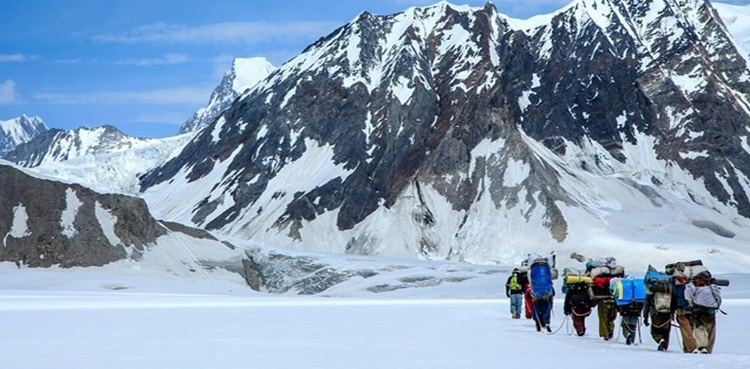PESHAWAR: The Peshawar High Court has banned the removal and transport of snow from mountain areas, stating that this practice is affecting the environment and contributing to climate change, ARY News reported.
According to reports, the court issued a written order during a hearing on the commercial use of glaciers. It directed officials to stop the movement of snow from areas such as Dir, Swat, Buner, and Mansehra.
According to the court order, the Environmental Protection Agency (EPA) submitted a report, but the court found it unsatisfactory.
An official from the National Highway Authority (NHA) confirmed that snow was indeed being transported from mountainous regions.
The court expressed concern that this activity is having harmful effects on the environment. It ordered the EPA to prepare and submit a detailed report on snow transport from these areas before the next hearing.
For now, the hearing has been postponed for an indefinite period.
Read More: Italy launches €4 million climate resilience initiative for Sindh
Earlier, an Italian humanitarian organization launched a €4 million initiative aimed at strengthening the climate resilience of vulnerable communities in Sindh, one of Pakistan’s provinces most affected by climate-related risks.
According to a press release, the Food and Agriculture Organization of the United Nations (FAO) and Italian NGO CESVI have signed a partnership agreement to officially launch the RAFAA (Resilience & Adaptation by Fostering Anticipatory Action) project in Sindh.
The initiative is funded by the Italian Agency for Development Cooperation (AICS).
The €4 million project seeks to enhance resilience in communities at risk from climate impacts through anticipatory action and sustainable adaptation strategies.
The signing ceremony took place at the residence of Marilina Armellin, the Ambassador of Italy to Pakistan, and was attended by representatives from FAO, CESVI, the Embassy of Italy, and AICS.
Spanning 36 months, the RAFAA project will support rural communities in Sindh—one of the provinces most vulnerable to climate shocks such as floods, droughts, and heatwaves—by establishing multi-hazard early warning systems, improving water quality monitoring, and promoting climate-resilient livelihoods.


Leave a Comment